Celebrating our extraordinary nurses
Our nurses are leaders, clinicians, and patient advocates. They transform care and improve health for our members and communities.
Sarah Lee, RN, teaches a class to help new parents learn about breastfeeding. She educates them about what to expect and when to get help.
At Kaiser Permanente, we have nearly 74,000 nurses. In honor of Nurses Week, we salute them for leading with purpose and advancing the nursing profession.
These 9 profiles show the many ways our nurses use best practices and new evidence to transform patient care.
Our nurses create cultures of excellence. And they improve the lives of the members, patients, and communities we serve.
Empowering nurses
Eziaku “Aku” Chijioke, RN, is the Magnet program director and department manager of specialty nurses for hemodialysis, wound care, and peripherally inserted central catheters at the Kaiser Permanente Ontario Medical Center in Ontario, California.
She also co-leads a shared governance council that includes nurses and labor partners. Together, they set goals for nurses to improve patient care. Chijioke also works closely with leaders from other councils within the hospital to carry out the work. One of their recent goals involved helping patients eat and walk within 12 hours of surgery, leading to faster recoveries.
The goal included identifying the types of patients who were good candidates, educating staff, performing routine knowledge checks, and providing peer-to-peer coaching when needed.
The hospital increased the percentage of patients eating within 12 hours after surgery from 39% in 2022 to 75% in 2024. The percentage of patients walking within 12 hours after surgery increased from 42% in 2022 to 96% in 2024.
The more you contribute to problem-solving, the better you get at it.
I believe in empowering nurses who care for patients at the bedside. Give them the opportunity to fix problems, and they’ll come up with solutions.
It gives nurses a sense of ownership in the work and the organization. It makes nurses proud to work at Kaiser Permanente.
When nurses have a seat at the table, they can mold their practice and feel empowered to come up with solutions. The organization benefits from their talents.
Using the latest research to improve care
Paul D. Faulkner, RN, is a professional practice consultant for Kaiser Permanente in Colorado. He develops procedures and guidelines that ensure nurses provide high-quality patient care.
He also holds a position on an interdisciplinary committee that includes doctors, pharmacists, and other nurses.
Recently, Faulkner called the committee’s attention to new guidance from the Centers for Disease Control and Prevention on pink eye, a common infection among school-age children. The guidance allows nurses to treat a mild condition without antibiotics.
Since nurses started following the new guidance in April 2023, the region experienced a 50% decrease in antibiotic usage and waste, with no increase in visits to urgent care or the emergency room.
It creates confidence and develops relationships. It makes you want to seek out more research and give our members and patients the evidence-based care they deserve.
Quality improvement committees have a formal, standard structure with roles and responsibilities already outlined. So, it’s more efficient to create guidelines and implement them.
Helping members get the care they need, when they need it
Tessa Hlavaty, RN, is the lead nurse for ob-gyn at the Kaiser Permanente Interstate Medical Office East in Portland, Oregon. She provides patient care. She helps develop training for medical assistants and nurses. She also organizes staff and procedures.
Recently, she worked with nurse educators to teach registered nurses how to perform Pap tests. Pap tests help detect cervical cancer. They’ve historically been performed by doctors, nurse practitioners, and nurse-midwives.
Many Kaiser Permanente members in the Northwest had delayed getting their regular Pap tests due to the COVID-19 pandemic. Before nurses were trained to conduct the test in fall 2022, members had been waiting up to 3 months for Pap test appointments. Now, in spring 2024, members can usually get an appointment within 4 weeks.
Hlavaty was instrumental in creating training material to teach other nurses how to create a comfortable and inclusive environment. Pap tests may raise past trauma-related concerns for some patients.
It makes me feel more confident in my abilities — especially in my ability to collaborate with other clinical partners.
A formal process helps standardize and streamline changes in patient care. Having nurses involved helps ensure programs work well for nurses.
Supporting new mothers
Sarah Lee, RN, works at the Kaiser Permanente Bellevue Medical Center in Bellevue, Washington. She provides nursing care for the general surgery clinic and the ob-gyn department.
As an international board-certified lactation consultant, Lee also helps new mothers. In this role, she helped change the current and established approach to treating milk blebs — or blocked nipple pores — in Kaiser Permanente patients in Washington.
One of her patients had received basic medical care for a milk bleb, but the problem persisted. Recognizing the limitations of basic treatments, Lee dug into new research on breast inflammation.
She found that some treatments — namely, those that involve needles, deep massage, or heating pads — had the potential to aggravate inflammation and introduce infection. She also learned that merely opening the blocked pore can fail to address underlying inflammation.
Lee advocated for the use of anti-inflammatory treatments, such as prescription-strength steroid cream. Working closely with the patient’s primary doctor, she ensured the patient received steroid cream therapy, and it reduced the inflammation.
Lee is in the process of sharing this alternative treatment approach with all Kaiser Permanente lactation nurses in Washington.
I like thinking in new ways. It makes me want to learn more and ask questions. If we can all share with each other, there are things each of us can learn.
I think it’s important for nurses to have a platform to speak up. It gives us a way to share good ideas. It’s also fascinating to become involved in projects that are outside your daily job and to share best practices.
Helping members manage pain
Sandra Tompkins, RN, is a case manager for Kaiser Permanente in Hawaii. One part of her role is to help patients manage their pain and opioid use.
She improved patient safety and care quality by developing a 6-week program to help patients manage pain without medication. Her approach was based on an existing research study in which Kaiser Permanente in Hawaii participated. She worked with a multi-disciplinary team including doctors, dietitians, wellness coaches, physical therapists, and a psychologist to expand the program.
The program teaches patients various skills, including an anti-inflammatory style of eating and relaxation techniques to manage pain without medication. Patients in the program reported feeling a marked improvement in their enjoyment of and outlook on life.
I am fortunate to work with teams where I feel comfortable giving my input and opinion. I continue to learn and grow while having fun working in a team environment.
Feeling valued and getting a chance to be heard has helped me grow tremendously and pushes me to continue to learn more and do better.
Nurses can provide different points of view from other members of a team.
We spend time with our patients and build relationships. We advocate for patients.
Reducing infection rates
Mhagsy Celestino, RN, works in the intensive care unit at the Kaiser Permanente Antioch Medical Center in Antioch, California.
She co-led a project to decrease the rate of catheter-associated urinary tract infections at the Antioch facility. These infections represent approximately 9% of all infections that occur in hospital patients. They increase the risk of other infections. And they increase the length and cost of hospital stays.
To address these infections, Celestino pioneered a series of steps based on a recommendation from the Centers for Disease Control and Prevention. The new process allows nurses to evaluate catheter lines. If a patient with a catheter line meets specific criteria, the nurse can remove the catheter without the delay of waiting for a physician order.
She also helps the hospital prevent catheter-associated urinary tract infections by educating nursing staff.
Catheter-associated urinary tract infection rates have plummeted. In 2020, the hospital reported 9 cases. By October 2023, there were zero. Patients say they feel more supported, safer, and more comfortable now that nurses can act more swiftly. Soon, the new process that Celestino created will be standard practice for Kaiser Permanente in Northern California.
It goes back to the main goal of providing high-quality care that patients deserve. I love seeing my patients improving and achieving wellness. It’s imperative to speak up and be part of solutions that improve care delivery for our patients.
Nurses play a vital role in providing health care. They are the key, heart, and backbone of any health system. They deliver care and provide education, information, comfort, and hope.
As nurses, we are also the key intermediaries between patients and other medical professionals. We serve as advocates and educators for patients in need. Patients who need something usually call their nurse. We are the ones who get the message to the right person.
Simplifying guidelines to improve care quality
Sherri Shaw, RN, works at the Kaiser Permanente Appointment and Advice Call Center in Vallejo, California. She is also the co-chair of a nurse committee on patient quality.
She led the committee in revising a set of guidelines for cough, cold, flu, and COVID-19 symptoms. The guidelines had become complicated, repetitive, and time-consuming for nurses to use when assessing patients.
She refined and simplified the language. She deleted repetitive information. The revised guidelines mean nurses can more quickly and effectively assess patients. Patients benefit from getting an accurate diagnosis in less time.
It has made me a stronger nurse. It helps me understand why certain changes are made. I can see the bigger picture and help other nurses understand, too.
Being part of a formal process is helpful. I try to make the information I learn from a quality improvement committee meeting available to everyone. Other nurses are more apt to implement changes well if they know why we made a change.
Helping nursing students get real-world experience
Lesia Jackson, RN, is a lead professional development specialist for Kaiser Permanente in Georgia. She helps develop educational content for the nursing team to ensure they deliver high-quality care.
Jackson came up with the idea of a residency program to provide more real-world preparation for licensed practical nurses. The LPN graduate program launched in Georgia at the end of 2022. By spring 2024, 14 people have graduated.
She first heard about new nursing graduates needing supervised clinical training and experience from a local technical college where she sits on an advisory board. Concerns were spreading about the lack of in-person training due to the COVID-19 pandemic.
So, Jackson put together an accredited training program. She makes sure to keep tabs on the residents during training. Meeting all their training needs also helps Kaiser Permanente stand out as an employer of choice as the LPN residents search for jobs.
It requires me to keep up with the latest knowledge. Nursing changes so fast. And now with technology, what we used to do a certain way doesn’t have to be done that way anymore.
A formal council advocates for nurses, and it has a structured, standardized format.
When we’re told to make changes that impact nursing, but we weren’t involved in the decision, the solution doesn’t always make sense.
We must provide the nursing component to make sure the change is safe for patients and based on evidence — and that it makes sense in the nursing workflow.
New efficiencies improve the patient experience
Audrey M. Trinkes, RN, works at the Clinical Contact Center for Kaiser Permanente in the Mid-Atlantic States. She takes calls from patients in the Northern Virginia, metropolitan Washington, D.C., and metropolitan Baltimore area. Patients call for a variety of reasons ranging from routine illnesses to emergencies that result in a 911 call.
Trinkes serves on 2 formal committees that seek to empower nurses and transform care through nurse-led initiatives. In her role on one of these committees, Trinkes introduced a change that supports efficiency and care quality.
Clinical Contact Center staff must quickly access patients’ medical histories, care notes, privacy authorizations, and appointment information. Doing so ensures patients receive timely and appropriate care.
To help make Clinical Contact Center staff more efficient, Trinkes and the committee developed a technology super user role within the department. Super users help colleagues with questions and provide support as needed.
I am so inspired by the work I’ve done that I am completing a master’s certificate in health care quality and patient safety.
I’m passionate about quality and process improvement. I have grown so much by being in leadership roles in both of the formal committees I serve on. I’m better able to lead meetings, collaborate with management, and make connections outside of my department.
It’s important that our team of nurses know they are being heard. Nurses feel more confident and supported when they know that someone who understands their work — their point of view — is speaking for them.
-
Social Share
- Share Celebrating Our Extraordinary Nurses on Pinterest
- Share Celebrating Our Extraordinary Nurses on Linkedin
- Share Celebrating Our Extraordinary Nurses on Twitter
- Share Celebrating Our Extraordinary Nurses on Facebook
- Print Celebrating Our Extraordinary Nurses
- Email Celebrating Our Extraordinary Nurses
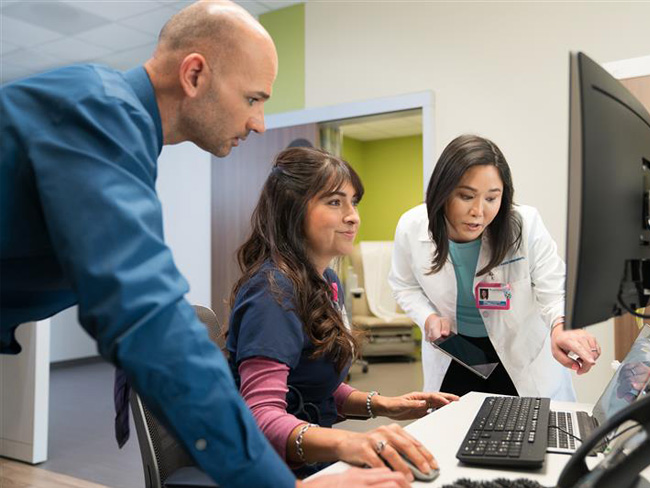
May 7, 2024
Paying tribute to our extraordinary nurses
During National Nurses Week, we thank our remarkable nurses and celebrate …
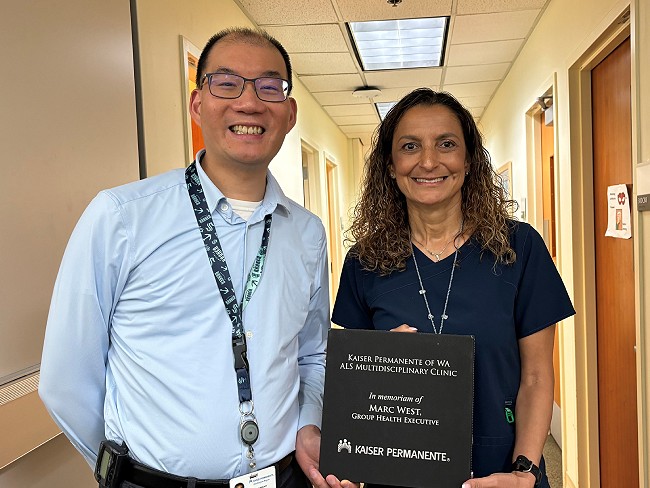
May 1, 2024
Tacoma ALS clinic recognized for high-quality care
Patients with amyotrophic lateral sclerosis, also called Lou Gehrig’s disease, …

April 9, 2024
Building partnerships to inspire the next generation
Kaiser Permanente supports education and career opportunities for students …
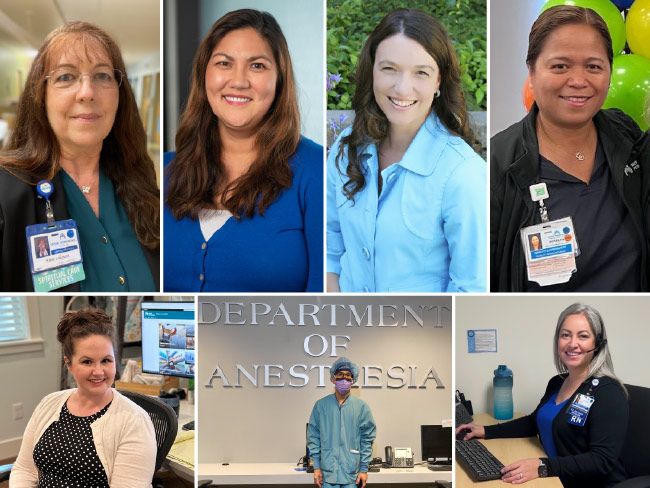
March 27, 2024
Honoring extraordinary nurses
Kaiser Permanente’s award-winning nurses transform patient care and improve …
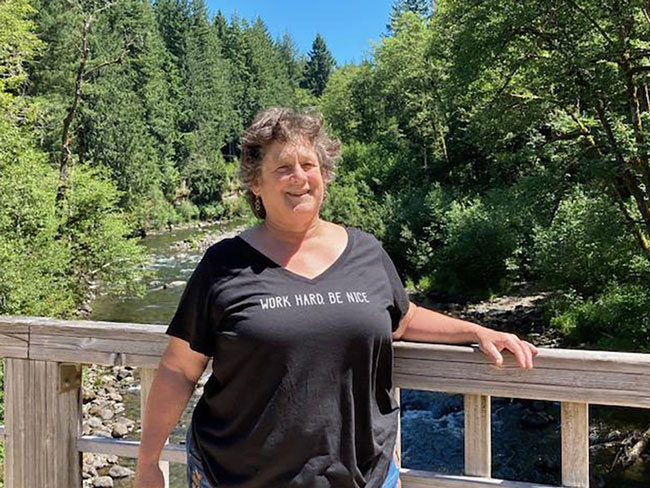
December 13, 2023
Nurse navigators guide patients from diagnosis to treatment
An unexpected cancer diagnosis left Jennifer Martin unsure of the next …

October 3, 2023
Nursing excellence recognized at Fontana Medical Center
The prestigious Magnet® designation affirms the compassion, dedication, …

August 8, 2023
Nursing excellence: Joining the elite 10% in the nation
Kaiser Permanente Panorama City Medical Center achieves coveted Magnet® …

May 18, 2023
The gold standard of nursing excellence
Kaiser Permanente Baldwin Park Medical Center achieves Magnet status, the …

February 2, 2023
The gold standard of nursing excellence
Kaiser Permanente Ontario Medical Center achieves Magnet® status, the highest …

December 14, 2022
Honoring extraordinary nursing care
Kaiser Permanente’s award-winning nurses are shining examples of our culture …

August 17, 2022
The gold standard of nursing excellence
Nurses at the Kaiser Permanente West Los Angeles Medical Center are honored …
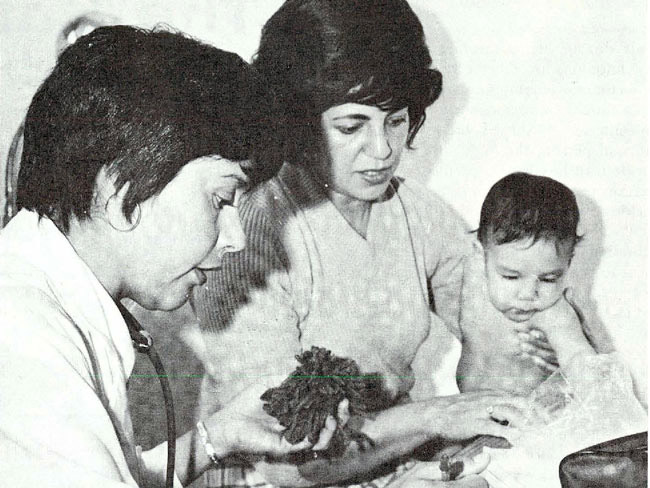
May 26, 2022
Nurse practitioners: Historical advances in nursing
A doctor shortage in the late 1960s and an innovative partnership helped …
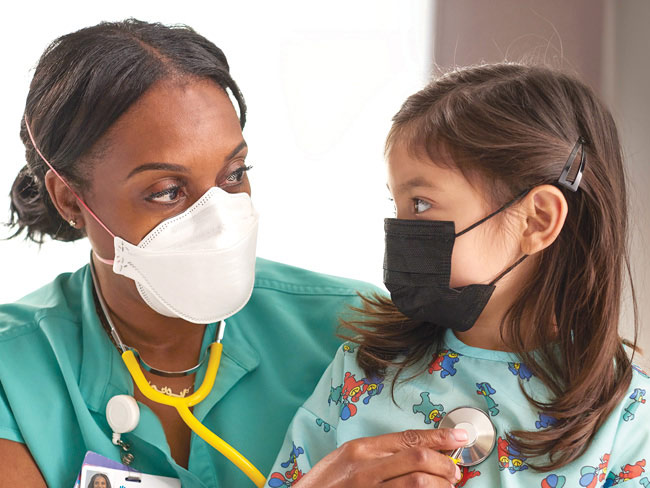
May 6, 2022
Honoring our nurses
Thank you for delivering high-quality, compassionate care every day.
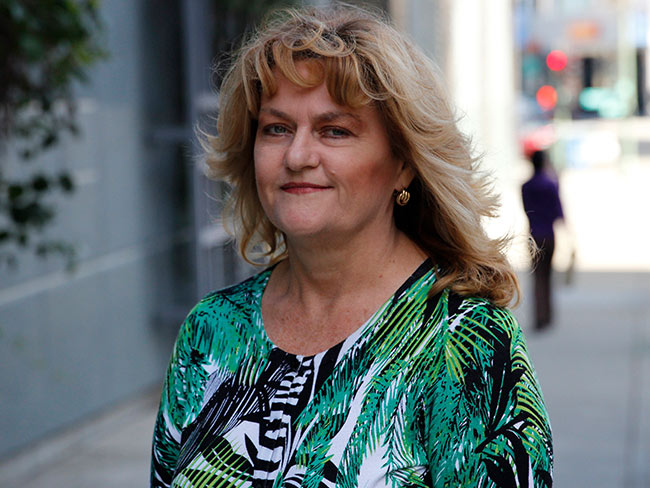
January 11, 2022
Nurse leader honored for research efforts
Meet Elizabeth Scruth, winner of the Kaiser Permanente 2021 Excellence …
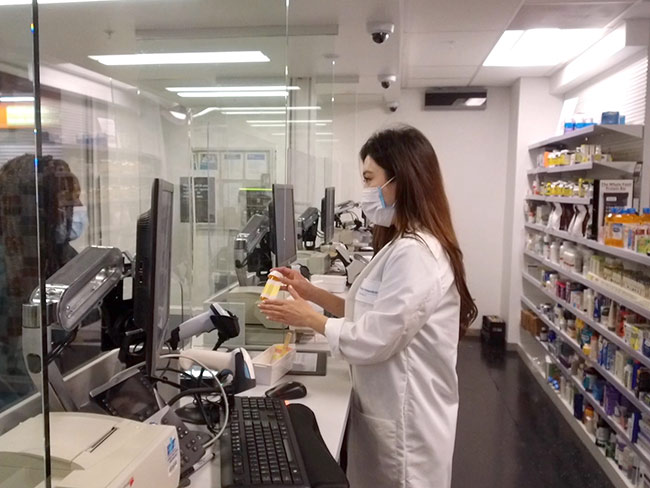
March 30, 2021
Looking back at the pandemic — care during the surges
A multipart series capturing the reflections of Kaiser Permanente employees …
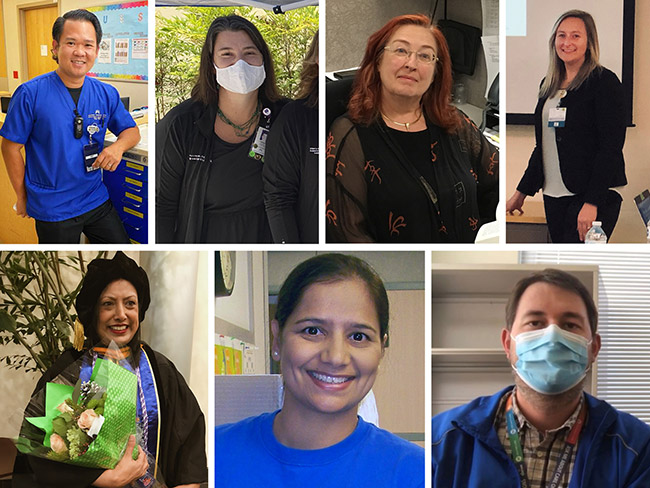
November 17, 2020
Honoring nursing excellence
Our nursing excellence award winners have exhibited extraordinary efforts …
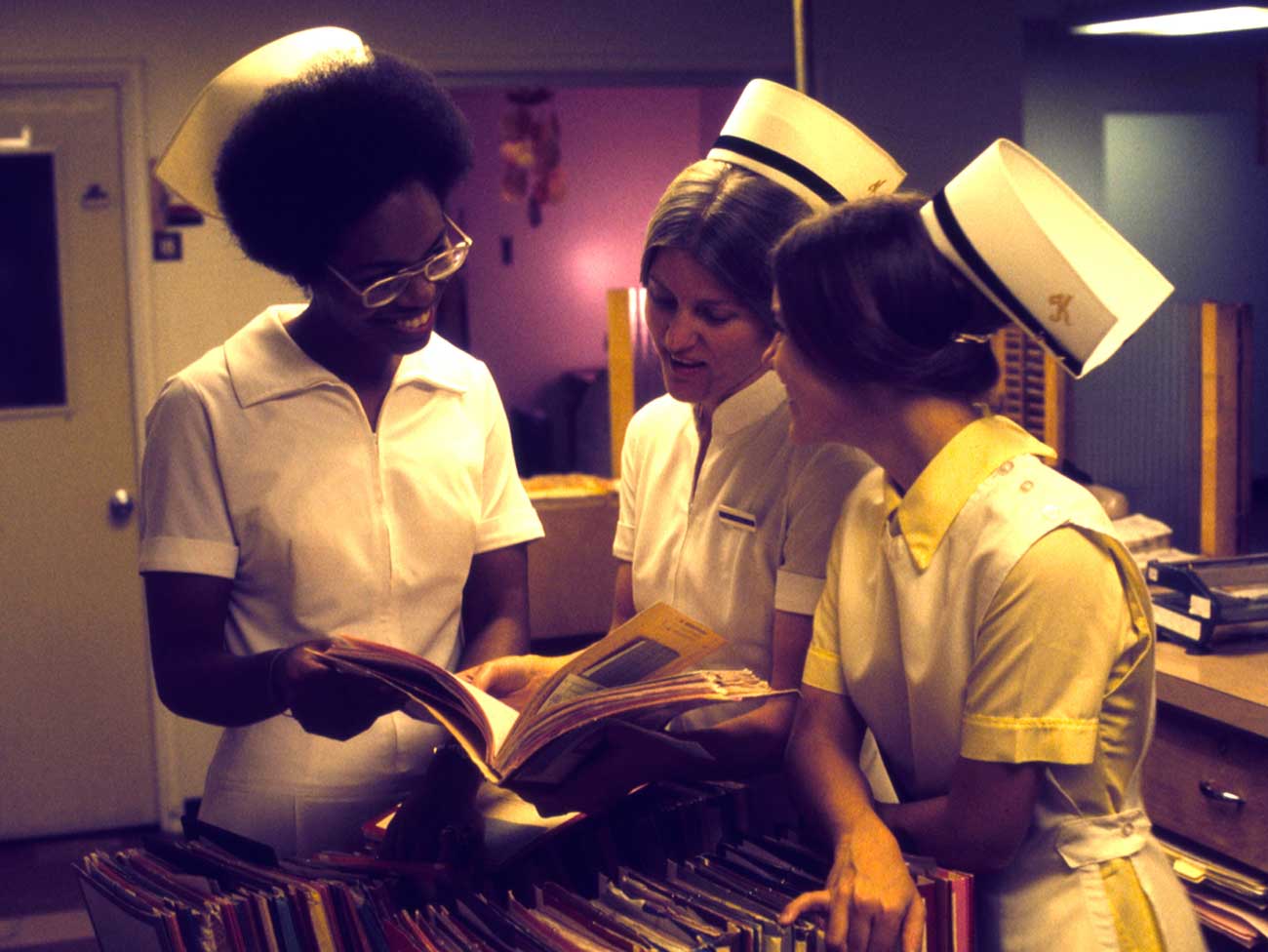
September 28, 2020
A legacy of disruptive innovation
Proceeds from a new book detailing the history of the Kaiser Foundation …

August 26, 2020
Kaiser Permanente’s pioneering nurse-midwives
The 1970s nurse-midwife movement transformed delivery practices.
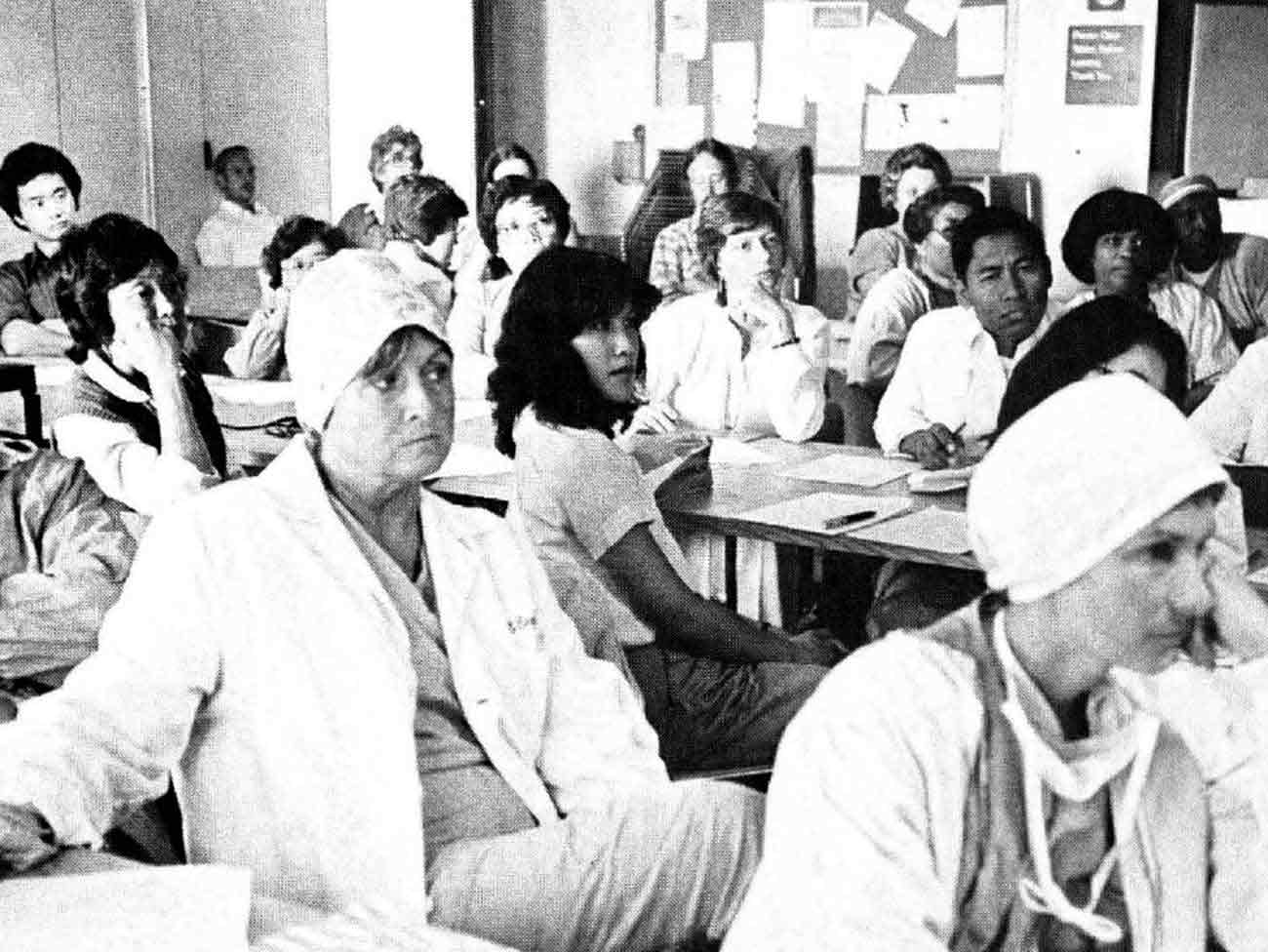
May 18, 2020
Nurses step up in crises
Kaiser Permanente nurses have been saving lives on the front lines since …
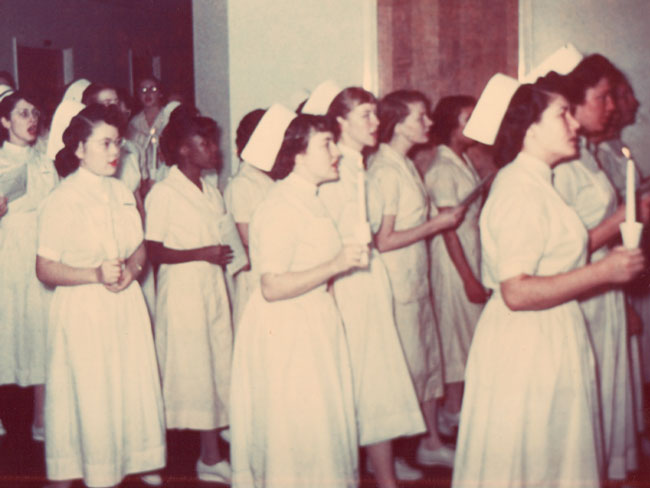
April 30, 2018
Nursing pioneers leads to a legacy of leadership
Kaiser Foundation School of Nursing students learned a new philosophy emphasiz …

May 4, 2017
How a Kaiser Permanente nurse transformed health education
Kaiser Permanente's Health Education Research Center and Health Education …
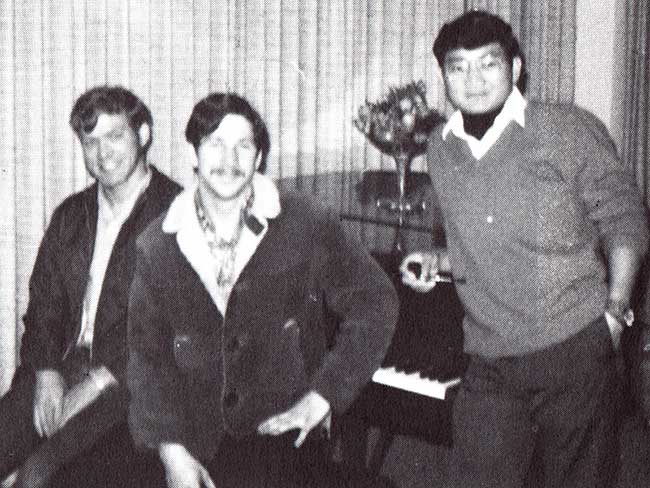
May 5, 2016
Male nursing pioneers
Groundbreaking male students diversify the Kaiser Foundation School of …
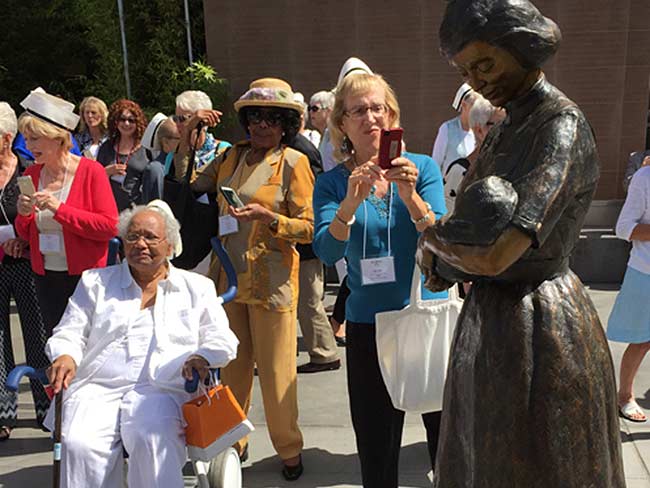
July 1, 2015
Sculpture dedicated to Kaiser Nursing School
The Kaiser Foundation School of Nursing sculpture near Kaiser Oakland hospital …
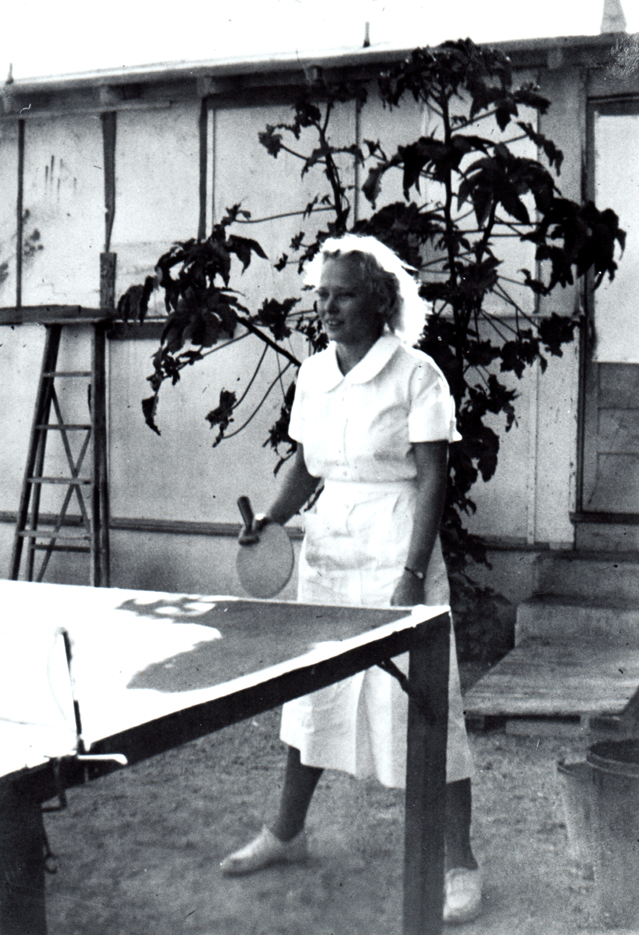
May 6, 2015
Celebrating Betty Runyen — Kaiser Permanente’s ‘founding nurse’
In a desert hospital during the Great Depression, Betty Runyen overcame …
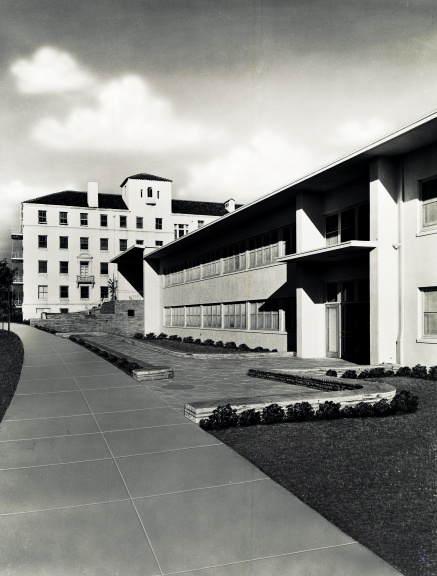
June 20, 2014
Old hospital holds memories of Kaiser Permanente’s past
Rebuilt Oakland Medical Center to open for business.
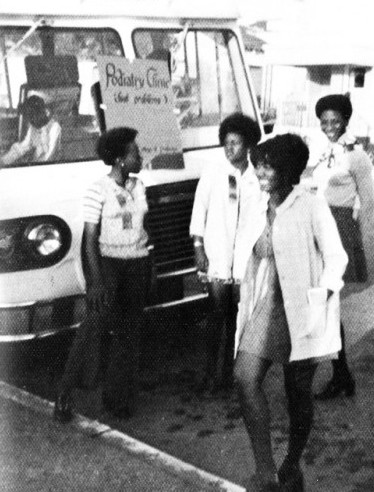
May 5, 2014
Black nurses get together to forge their own future
California African American nurses organize in early 1970s to address health …
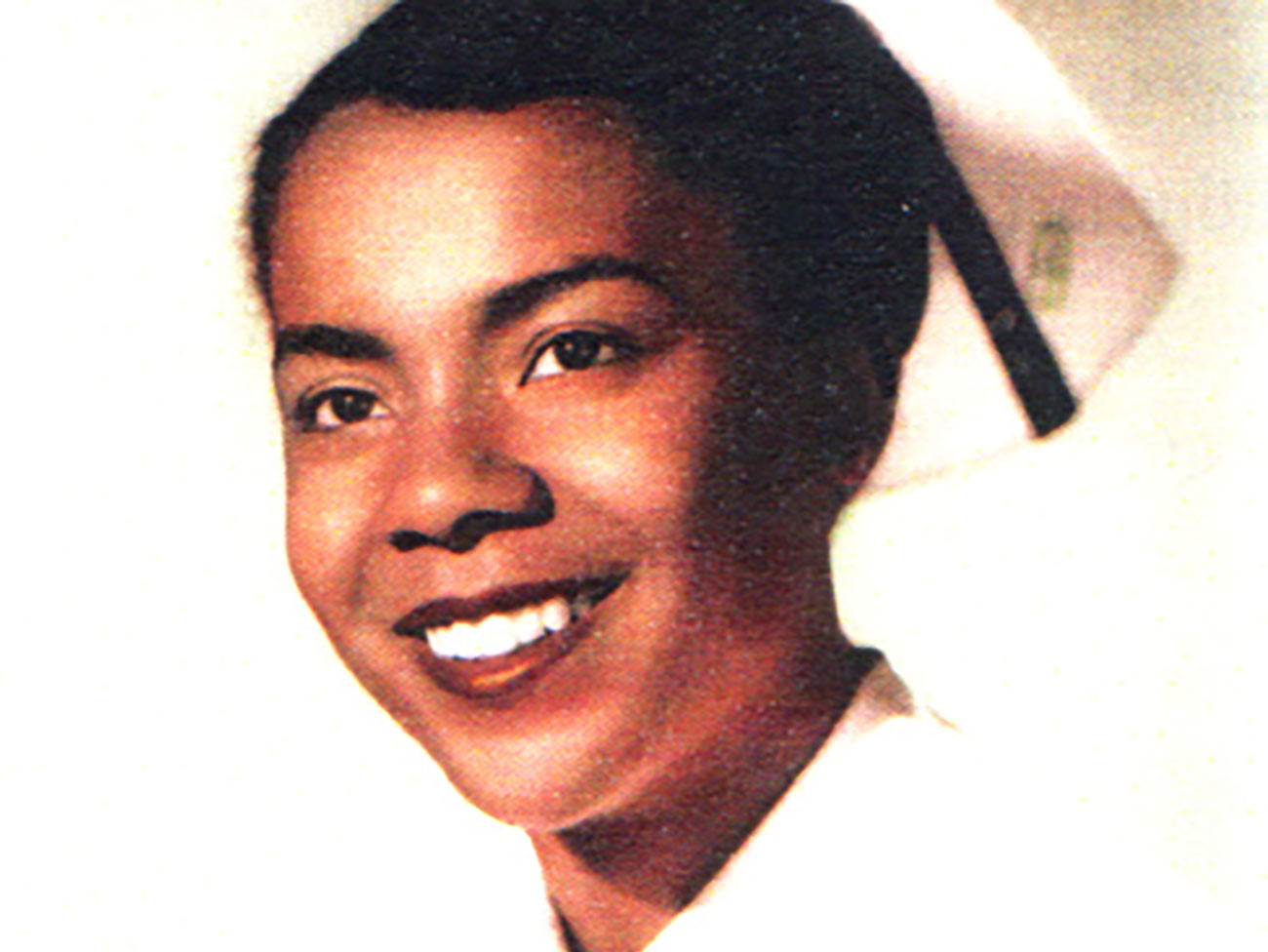
May 1, 2014
Beloved nurse earned place in Kaiser Permanente history
Jessie Cunningham, the first Black nursing supervisor at Oakland Medical …
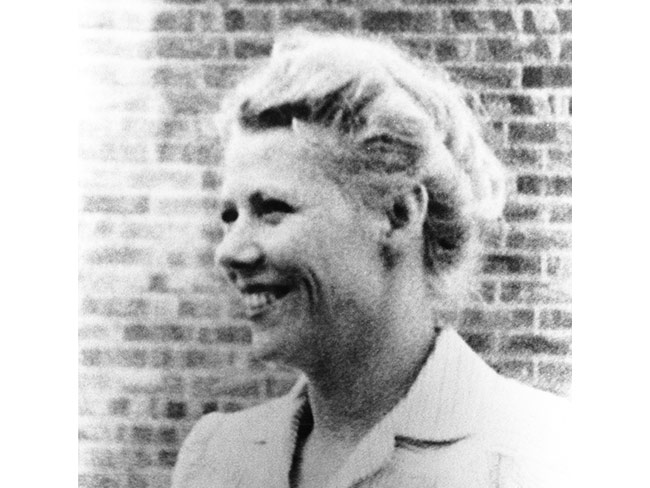
July 27, 2012
Millie Cutting: physician’s wife makes her own mark
From coordinating community groups to the World War II home front, Millie …
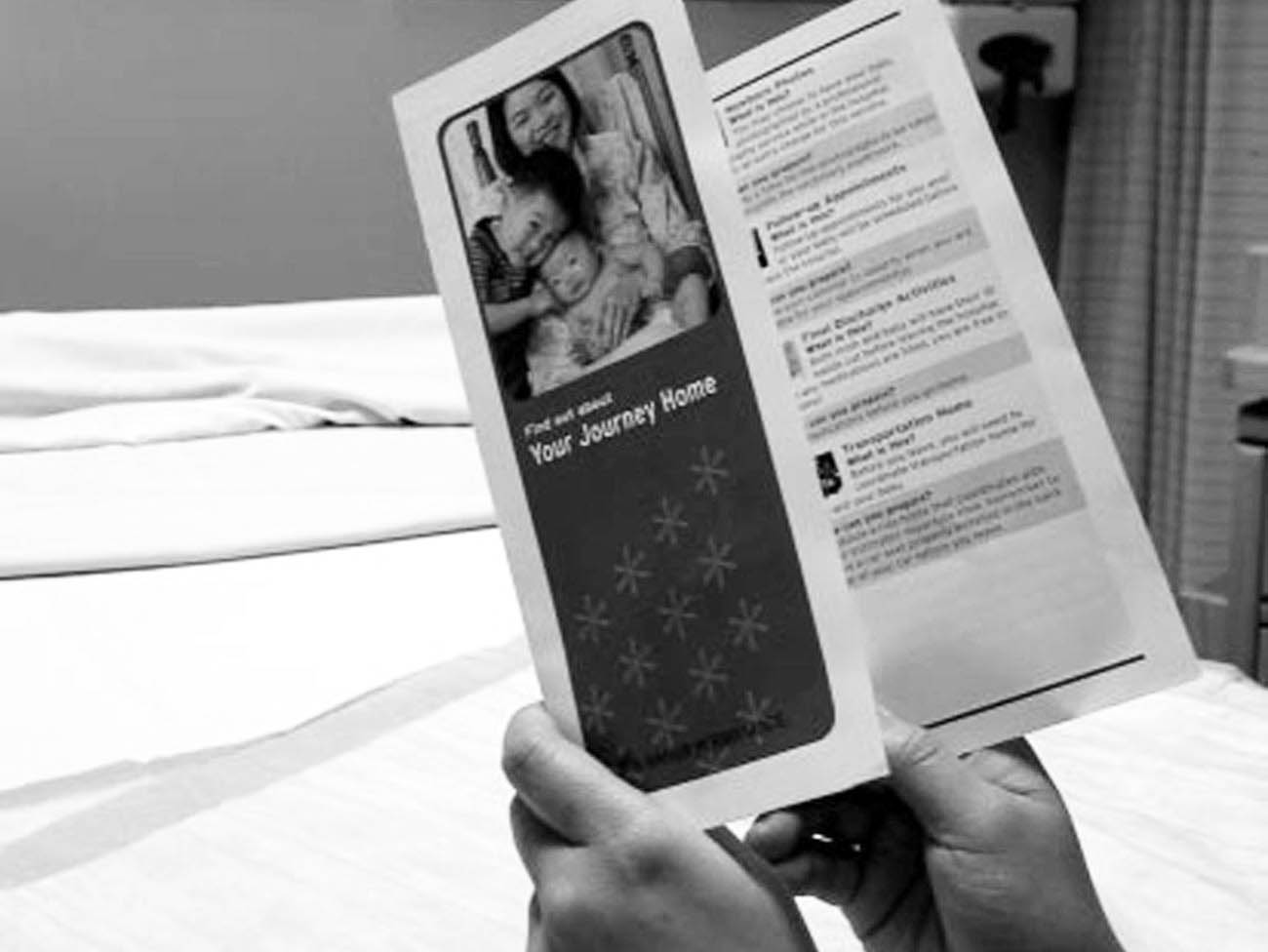
July 1, 2011
Maternity care evolves to embrace family
Shortened in the 1970s led Kaiser Permanente to offer prenatal classes …
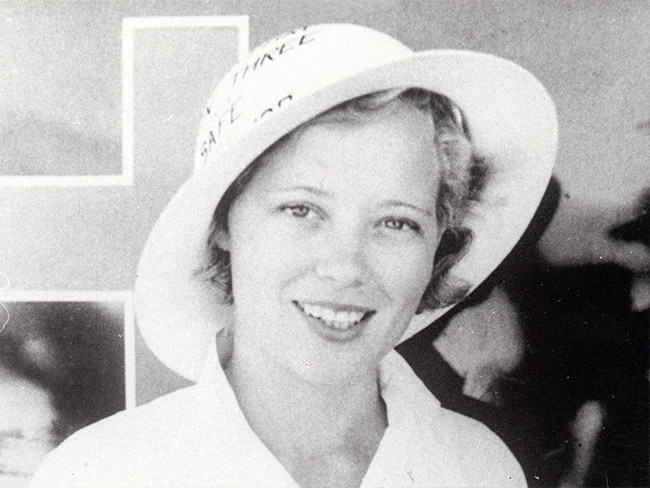
June 2, 2011
Kaiser Permanente nursing excellence: 75 years in the making
The founding principles and vision of nursing started in 1933. and paved …
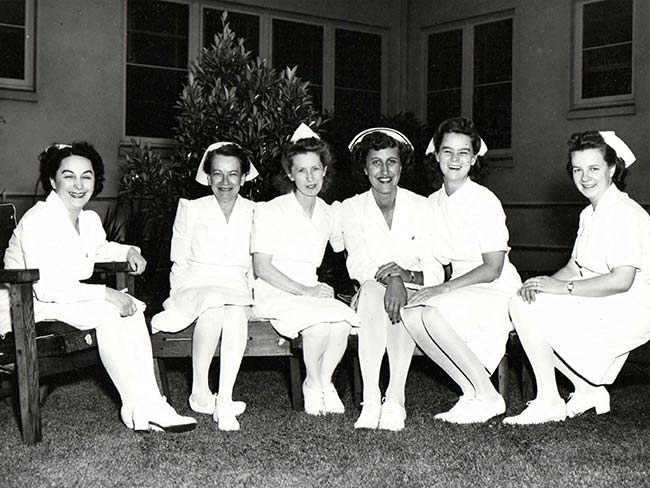
April 30, 2011
Nurses begin quest for professional recognition after World War II
Co-founder Dr. Sidney Garfield makes history by signing the first nurse …
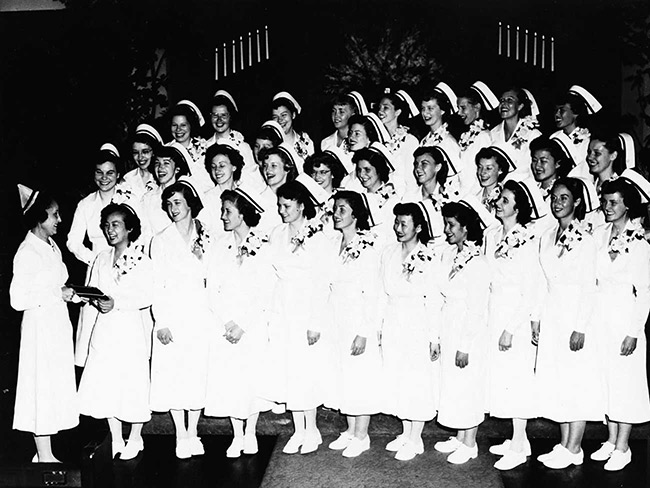
March 20, 2011
Iron nurse Dorothea Daniels had a soft spot for nursing students
The Kaiser Foundation School of Nursing students received effective curriculum …








